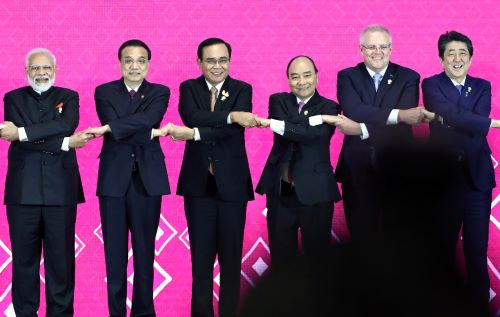Experts claimed that the Belt and Road Initiative (BRI) would bring great economic benefits to US businesses. They suggested that these businesses should take advantage of China's BRI by engaging in international efforts to participate in the project.
The executive director of the US-China Institute at the University of Southern California Clayton Dube spoke at the annual luncheon at Long Beach-Qingdao Sister Cities Association (LBQA). He shared with business representatives, government officials, and scholars from both countries that the Belt and Road Initiative would put Chinese state-owned companies are taking the lead in the technological market reported China Daily.
He then suggested that US companies should see this as an opportunity for the participant and improve their company's growth through the gigantic project. Dube claimed that local corporations who worked with China on infrastructure projects opened more doors for them.
Dube said that companies who worked with China had better chances of global expansion after engaging in business collaborations with Chinese companies. He cited a California-based company called Trimble as one of his examples.
He claimed that Trimble engaged in an infrastructure project with Beijing in building two new airports. He also revealed that companies such as AECOM, Deerfield, Caterpillar, and Generic Electric have also engaged in business with Chinese firms.
Dube then suggested that Chinese environmental technologies pose as a potential market collaboration with California-based companies. He revealed that the Chinese government currently laid out a $77 billion budget for environmental technologies which is a gigantic project where US businesses would take advantage of.
According to the Council on Foreign Relations, the BRI was introduced by Chinese President Xi Jinping. It would create the Silk Road Economic Belt and 21st Century Maritime Silk Road and provide infrastructure development and investment opportunities in Europe and East China.
Director of the University of Southern California's Center for Transnational Law and Business Brian Peck added that several trade partnerships offer similar advantages to the BRI. He claimed that the Regional Comprehensive Economic Partnership (RCEP) and the Trans-Pacific Partnership have progressed without US business interventions.
Peck then exclaimed that the lack of participation from the US firms puts their businesses at a disadvantage. He then added that the US must change its policies and become more engaged in more partnerships like the RCEP on a regional basis. He manifested that this would greatly improve US firms' globalization in other markets.
A lawyer and immediate past chair of the LBQA David Griffith also shared that the BRI also provides great opportunities for smaller businesses as well. He said that the participation of Southern California companies would benefit from the billions' worth of budget in bridging ports, highways, and bridges. He claimed that the BRI program is also an impressive project and that China had been fairly dealing with US firms over the years.






